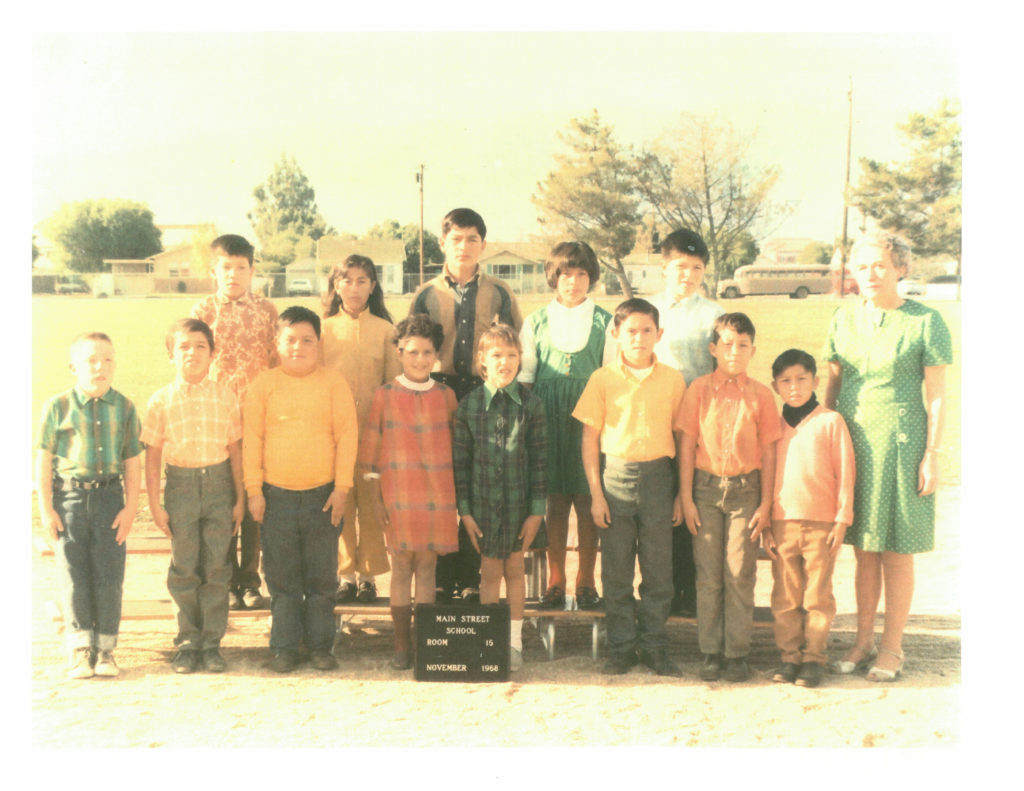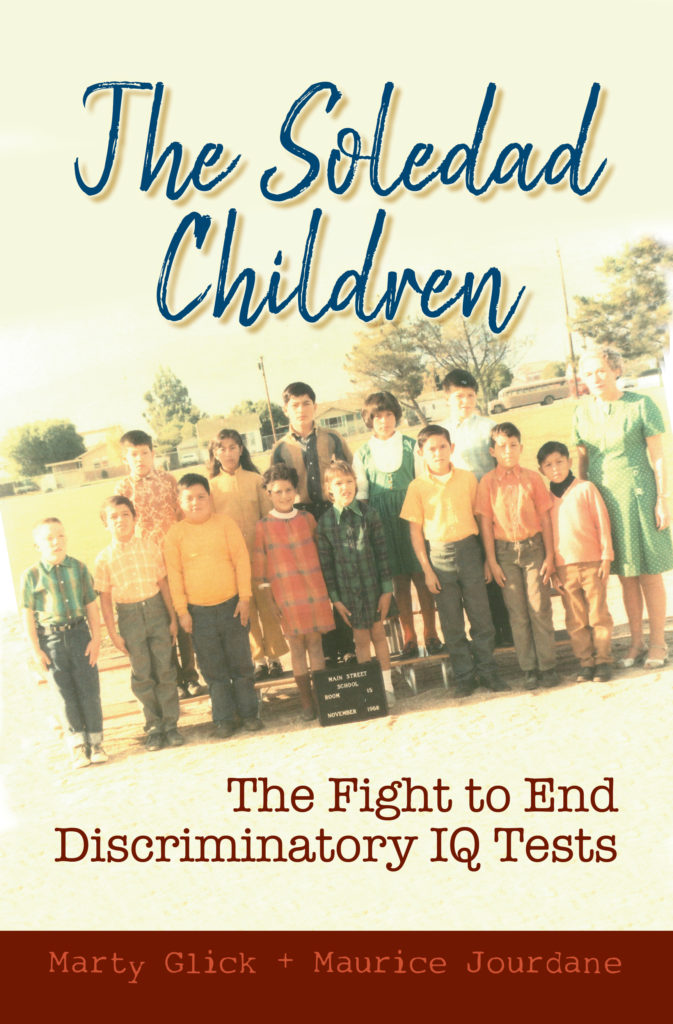
The Soledad Children: The Fight to End Discriminatory IQ Tests is a new book that looks at the push in California for equal educational opportunities for nonwhite and non-English-speaking students back in the 1960s, but is all too relevant today. It is written by Marty Glick and Maurice Jourdane, then attorneys with California Rural Legal Assistance.
“Many parts of the test asked about things Arturo did not understand, such as ‘Who was Genghis Khan?’ and ‘Why is it better to pay bills by check than cash?’
CRLA filed a class action lawsuit in 1970 after discovering that schools were misusing culturally biased English-language IQ tests, by asking questions like “Who wrote Romeo and Juliet?” to place Spanish-speaking students into “educable mentally retarded” (EMR) classes. At least 13,000 farmworker and other second-language students were victims of these tests and dubbed EMR. Families were devastated by the stigma and lack of opportunity to learn.

Mexican American children were not the only minority impacted. They and African American students made up 21.5 percent of the state population but were 48 percent of special education programs at the time.
The lawsuit, on behalf of the 13,000 students and another 100,000 at risk of being categorized EMR, helped secure students’ removal from EMR classes and ensure revised, appropriate testing for students throughout the state.
Here is an excerpt adapted and condensed from the book’s prologue:
Arturo Velázquez, born and raised in a farm labor camp in Soledad, was bright, gregarious and energetic. When Arturo entered the first grade, he neither spoke nor understood any English. His teachers at the elementary school in East Soledad spoke only English in their classes.
Arturo understood little of his first two years of instruction but began to pick up English from some of his classmates and from his books. When he arrived at school for the third grade, he was given a timed IQ test in English. Arturo had trouble reading many of the words and questions in the test. Many parts asked about things he did not understand, such as “Who was Genghis Khan?” and “Why is it better to pay bills by check than cash?”
When Arturo came back to school the next day, he was told to go to a classroom where there were about a dozen children, all Mexican except for one Anglo boy off in a corner. The teacher handed out coloring books and pencils. Day after day, the class was coloring, cutting out pictures, doing a little bit of very easy addition and subtraction and recess. The children ranged in age from 7 to 13 but were in the same classroom together all day.
A year later, Arturo was still in the same room. Other children on the playground both shunned and teased him and his classmates, calling them “retard” and “tonto.”
The children in the class complained to their parents, but the parents did not know what they could do. The idea of mounting a legal challenge was completely foreign to the Soledad labor camp parents. They had no understanding of the justice system, did not know any attorneys or have the ability to afford them.
But in mid-1969, California Rural Legal Assistance (CRLA) attorneys Marty Glick and Mo Jourdane became counsel for the Soledad children — and eventually came to represent them and thousands of other children in a class action lawsuit. The lawsuit, known as Diana v. State Board of Education, challenged the use of English-only and culturally biased IQ tests to justify the placement and retention of the Mexican American children in classes for the mentally retarded. The battle raged for a decade.
CRLA eventually won a consent decree that allowed non-Anglo children to choose the language in which they would respond on IQ tests. It banned verbal sections of the test. It also required state psychologists to develop an IQ test appropriate for non-English-speaking students.
The Soledad Children (Arte Público Press) is available on Amazon.
The Discussion 0 comments Post a Comment